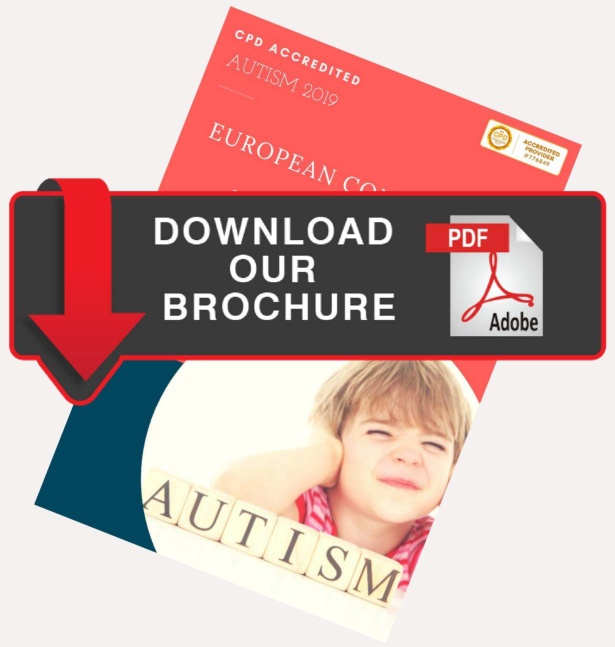
Gary W. Lavigna
Institute for Applied Behavior Analysis, USA
Title: Preventing the need for restrictive practices through the use of nonaversive reactive strategies for rapid, safe situational management
Biography
Biography: Gary W. Lavigna
Abstract
Will be updated shortlyBehaviors of concern are those that can put the person or others at risk. This can lead to restrictive practices aimed at keeping people safe, which themselves can lead to harm, scandal and a decreased quality of life. Positive Behavior Support (PBS) holds a surprising solution to this dilemma. When a behavior of concern occurs, the immediate objective of the reactive strategy used should be behavioral "resolution", i.e., rapid, safe situational management. The quantified measure of "episodic severity" should be used to evaluate this outcome. Rather than using a restrictive procedure, research has provided a host of evidenced based non-aversive reactive strategies (NARS) that can lead to "resolution." These include, among others, active listening, redirection to an alternative, even preferred activity and stimulus change. These NARS have been shown to be more effective than the restrictive procedures in reducing episodic severity and in keeping people safe. The elephant in the room is the overwhelming but unacknowledged body of research literature that has identified a NARS that is superior to all other strategies, including both the other NARS and restrictive practices. That is, it consistently achieves rapid, safe situational management and dramatically reduces the episodic severity of the behavior. The elephant sitting behind the elephant in the room is the overwhelming but unacknowledged body of research literature that establishes that this remarkably effective NARS can be used without any negative side effects. Government and agency policy should require the full use of NARS before the use of restrictive practices is allowed.
Behaviors of concern are those that can put the person or others at risk. This can lead to restrictive practices aimed at keeping people safe, which themselves can lead to harm, scandal and a decreased quality of life. Positive Behavior Support (PBS) holds a surprising solution to this dilemma. When a behavior of concern occurs, the immediate objective of the reactive strategy used should be behavioral "resolution", i.e., rapid, safe situational management. The quantified measure of "episodic severity" should be used to evaluate this outcome. Rather than using a restrictive procedure, research has provided a host of evidenced based non-aversive reactive strategies (NARS) that can lead to "resolution." These include, among others, active listening, redirection to an alternative, even preferred activity and stimulus change. These NARS have been shown to be more effective than the restrictive procedures in reducing episodic severity and in keeping people safe. The elephant in the room is the overwhelming but unacknowledged body of research literature that has identified a NARS that is superior to all other strategies, including both the other NARS and restrictive practices. That is, it consistently achieves rapid, safe situational management and dramatically reduces the episodic severity of the behavior. The elephant sitting behind the elephant in the room is the overwhelming but unacknowledged body of research literature that establishes that this remarkably effective NARS can be used without any negative side effects. Government and agency policy should require the full use of NARS before the use of restrictive practices is allowed.
Behaviors of concern are those that can put the person or others at risk. This can lead to restrictive practices aimed at keeping people safe, which themselves can lead to harm, scandal and a decreased quality of life. Positive Behavior Support (PBS) holds a surprising solution to this dilemma. When a behavior of concern occurs, the immediate objective of the reactive strategy used should be behavioral "resolution", i.e., rapid, safe situational management. The quantified measure of "episodic severity" should be used to evaluate this outcome. Rather than using a restrictive procedure, research has provided a host of evidenced based non-aversive reactive strategies (NARS) that can lead to "resolution." These include, among others, active listening, redirection to an alternative, even preferred activity and stimulus change. These NARS have been shown to be more effective than the restrictive procedures in reducing episodic severity and in keeping people safe. The elephant in the room is the overwhelming but unacknowledged body of research literature that has identified a NARS that is superior to all other strategies, including both the other NARS and restrictive practices. That is, it consistently achieves rapid, safe situational management and dramatically reduces the episodic severity of the behavior. The elephant sitting behind the elephant in the room is the overwhelming but unacknowledged body of research literature that establishes that this remarkably effective NARS can be used without any negative side effects. Government and agency policy should require the full use of NARS before the use of restrictive practices is allowed.

